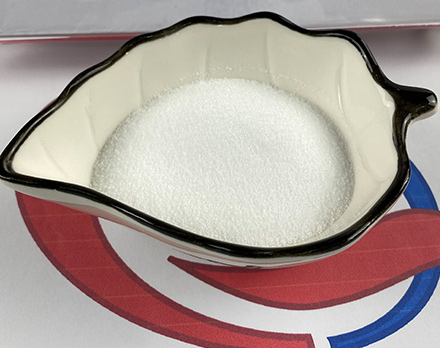Energy Based Raw Material - Edible Dextrose Monohydrate
Energy Based Raw Material - Edible Dextrose Monohydrate
Edible Dextrose Monohydrate is one of the commonly used raw materials in the food industry. Based on its characteristics, it has a wide range of applications in the food field, and it is also necessary to pay attention to reasonable consumption. Here are detailed instructions on consuming Dextrose Monohydrate:
I. Main uses in food.
1. Sweeteners.
The sweetness of Dextrose Monohydrate is about 70% -80% of that of sucrose, with a refreshing taste. It is often used in beverages (such as sports drinks, fruit juice drinks), pastries, candies, canned foods, etc., to replace some sucrose and adjust sweetness, while avoiding the overly sweet or greasy taste caused by sucrose.
2. Nutritional supplements.
As a monosaccharide, Dextrose Monohydrate can be rapidly absorbed and utilized by the human body, providing energy for the body. Therefore, it is often added to nutritional oral liquids, exercise energy bars, infant and toddler complementary foods, and other products to help replenish energy or meet the energy needs of special populations.
3. Moisturizing and thickening agents.
Due to the presence of crystalline water in its molecular structure, Dextrose Monohydrate can play a certain moisturizing role in food, extending the shelf life of products such as pastries and bread; Meanwhile, in foods such as jam and jelly, it can assist in thickening and improve texture.
4. As a fermentation aid.
In industries such as baking and brewing, Dextrose Monohydrate can serve as a nutrient source for microorganisms (such as yeast), promoting the fermentation process and making bread more fluffy and alcoholic beverages more fully fermented.
II. Food safety and precautions.
1. Safety.
Dextrose Monohydrate is a natural product of human metabolism, and consuming foods containing Dextrose Monohydrate that meet food safety standards is safe for healthy individuals. The Joint Expert Committee on Food Additives (JECFA) of the Food and Agriculture Organization of the United Nations (FAO) and the World Health Organization (WHO) has confirmed its safety and no daily allowable intake (ADI) limit has been set.
2. The importance of moderate consumption.
Dextrose Monohydrate belongs to refined carbohydrates, and excessive intake may pose health risks:
It leads to rapid increase of blood sugar, and is unfriendly to diabetes patients or people with poor blood sugar control, so the intake should be strictly controlled;
Excessive energy intake may be converted into fat accumulation, increasing the risk of obesity;
Long term high sugar diet may affect dental health and increase the risk of dental caries.
3. Applicable and contraindicated populations.
Target audience: People who need to quickly replenish energy (such as athletes, hypoglycemic patients), postoperative recovery period, etc., can consume in moderation under the guidance of doctors or nutritionists;
Tabooned/restricted groups: diabetes patients, obese people, people with high blood sugar, etc., should be careful to eat or avoid large intake, and should pay attention to the glucose content in the food nutrition composition table.
III. Summary.
Consuming Dextrose Monohydrate is a common energy based raw material in the food industry. Reasonable use can improve the taste and nutrition of food, but attention should be paid to the principle of "moderation", especially for special populations who should pay attention to their intake to ensure a healthy diet.
-
Inulin
-
Polydextrose
-
Resistant Dextrin
- Trehalose
- Resistant Dextrin(Soluble Corn Fiber)
- Resistant Dextrin(Soluble Corn Fiber)(Powder)
- Resistant Dextrin(Soluble Tapioca Fiber)(Powder)
- Resistant Dextrin(Soluble Tapioca Fiber)(Liquid)
- Resistant Maltodextrin Powder
- Resistant Maltodextrin Powder (Liquid)
- Organic Resistant Dextrin Powder (Corn Type) 70%
- Organic Resistant Dextrin Powder (Corn Type) 90%
- Organic Resistant Dextrin Powder (Tapioca Type) 70%
- Organic Resistant Dextrin Powder (Tapioca Type) 90%
- Organic Resistant Dextrin Syrup (Corn Type) 70%
- Organic Resistant Dextrin Syrup (Corn Type) 90%
- Organic Resistant Dextrin Syrup (Tapioca Type) 70%
- Organic Resistant Dextrin Syrup (Tapioca Type) 90%
- Organic Resistant Maltodextrin Powder (Corn Type) 70%
- Organic Resistant Maltodextrin Powder (Tapioca Type) 70%
- Organic Resistant Maltodextrin Syrup (Corn Type) 70%
- Organic Resistant Maltodextrin Syrup (Tapioca Type) 70%
- Organic Soluble Corn Fiber Powder 70%
- Organic Soluble Corn Fiber Powder 90%
- Organic Soluble Corn Fiber Syrup 70%
- Organic Soluble Corn Fiber Syrup 90%
- Organic Soluble Tapioca Fiber Powder 70%
- Organic Soluble Tapioca Fiber Powder 90%
- Organic Soluble Tapioca Fiber Syrup 70%
- Organic Soluble Tapioca Fiber Syrup 90%
- Resistant Dextrin Powder (Corn Type) 70%
- Resistant Dextrin Powder (Corn Type) 90%
- Resistant Dextrin Powder (Tapioca Type) 70%
- Resistant Dextrin Powder (Tapioca Type) 90%
- Resistant Dextrin Syrup (Corn Type) 70%
- Resistant Dextrin Syrup (Corn Type) 90%
- Resistant Dextrin Syrup (Tapioca Type) 70%
- Resistant Dextrin Syrup (Tapioca Type) 90%
- Resistant Maltodextrin Powder (Corn Type) 90%
- Resistant Maltodextrin Powder (Tapioca Type) 90%
- Resistant Maltodextrin Syrup (Corn Type) 90%
- Resistant Maltodextrin Syrup (Tapioca Type) 90%
- Soluble Corn Fiber Powder 70%
- Soluble Corn Fiber Powder 90%
- Soluble Corn Fiber Syrup 70%
- Soluble Corn Fiber Syrup 90%
- Soluble Tapioca Fiber Powder 70%
- Soluble Tapioca Fiber Powder 90%
- Soluble Tapioca Fiber Syrup 70%
- Soluble Tapioca Fiber Syrup 90%
-
Dioscorea Opposita Dietary Fiber
-
Wheat Dietary Fiber
-
Oat Dietary Fiber
-
Polydextrose Powder (Conventional Type)
-
Polydextrose Powder (Special Type)
-
Polydextrose Powder (Sugar Free Type)
-
Polydextrose Powder (Type II)
-
Polydextrose Powder (Type III)
-
Polydextrose Syrup (Conventional Type)
-
Polydextrose Syrup (Refined Type)
-
Polydextrose Syrup (Special Type)
-
Polydextrose Syrup (Standard Type)
-
Polydextrose Syrup (Sugar Free Type)
- Fructo Oligosaccharide
-
Malt Oligosaccharide
- Isomalto-oligosaccharide 900 Powder
- Isomalto-oligosaccharide 900 Powder(Corn)
- Isomalto-oligosaccharide 900 Powder(Tapioca)
- Isomalto-oligosaccharide 900 Syrup
- Isomalto-oligosaccharide 900 Syrup(Tapioca)
- Isomalto-oligosaccharide 900 Liquid (Corn)
- Isomalto-oligosaccharide 900 Liquid (DP3)
- Isomalto-oligosaccharide 900 Liquid (Tapioca)
- Isomalto-oligosaccharide 900 Powder (Corn)
- Isomalto-oligosaccharide 900 Powder (DP3)
- Isomalto-oligosaccharide 900 Powder (Tapioca)
- Organic Isomalto-oligosaccharide 900 Liquid (Corn)
- Organic Isomalto-oligosaccharide 900 Liquid (DP3)
- Organic Isomalto-oligosaccharide 900 Liquid (Tapioca)
- Organic Isomalto-oligosaccharide 900 Powder (Corn)
- Organic Isomalto-oligosaccharide 900 Powder (DP3)
- Organic Isomalto-oligosaccharide 900 Powder (Tapioca)
- Xylo-oligosaccharide
- Galacto-oligosaccharide
-
Mannan Oligosaccharide
-
Isomaltulose Powder
-
Saigao Stachyose






